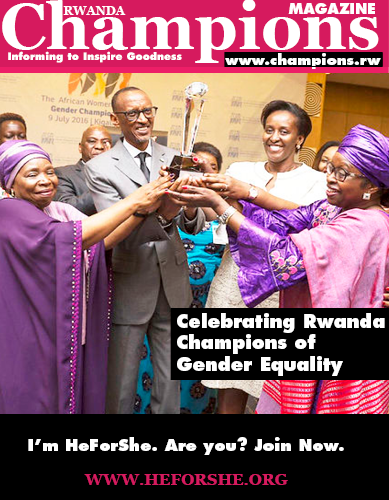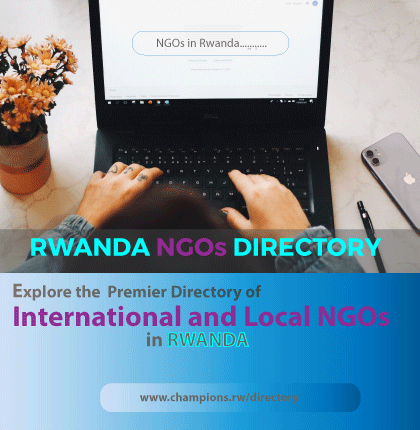Rwanda Reports Drop in Youth Unemployment as Job Creation Expands
Youth unemployment in Rwanda fell significantly in the final quarter of 2025, reflecting gradual improvements in job (…)
The Partnership for African Social and Governance Research (PASGR), in partnership with the Mastercard Foundation, has launched a new research project that will enable youth actively to participate in making policies that address youth unemployment by creating decent jobs for the improvement of better livelihoods for young people in Rwanda, Kenya, Uganda, Ethiopia, Rwanda, Nigeria, Ghana, Togo, Benin, Senegal, and Côte d’Ivoire.
Named ‘African Youth Pathways to Resilience and Systems Change (AYPReS)’, the project was launched in Kigali on September 10, 2025, and implementation will take three years.
The research project aims to empower young individuals by providing them with the tools and resources needed to influence policy decisions effectively. By fostering collaboration and innovation, the project seeks not only to tackle unemployment but also to create sustainable economic opportunities for a brighter future.
Youth unemployment in Africa has remained a significant challenge that has led to erosion of human capital, social exclusion, and economic stagnation.
According to Fidele Mwizerwa, a research associate for AYPReS in Rwanda, the research aims to collect the perspectives of youth on employment and dignified work which will be vital in shaping policies across the ten African countries.
“The project will ensure that youth are considered as partners, rather than beneficiaries, in the policymaking process. The project will specifically focus on the marginalized categories of youth, such as youth with disabilities, refugees and displaced persons, rural and young women, and other youth who are considered to belong in informalities,” Mwizerwa said.
He added that with consideration of the experience of the target categories, youth will be able to influence system change by contextually pointing out their specific barriers to better livelihood.
During the Project Stakeholder Inception Workshop, which was aimed at launching the project in Kigali, Rose Njage, program officer at PASGR, said the research project will use a new innovative approach known as ‘Utafiti-Sera,’ derived from the Swahili language, which is translated as ‘Research Policy.’
The model has a research-to-policy framework that systematically enables meaningful engagement of concerned stakeholders in the research process.
Rose Njage said: “It (AYPReS) will make sure that the findings from the research will influence the policy-making process. The critical aim is to involve the voice of the youth in making policies regarding employment.”
Dr. Jean Baptiste Nsenyiyumva, AYPReS Principal Investigator in Rwanda argued institutions to put the voice of youth into consideration for aligning critical problems with policies that aim to bring solutions.
"It is very important to remove the barriers that hinder the youth and ensure that we build trust and confidence in youth through capacity building," said Dr. Nsengiyumva.
The Executive director of Rwanda Union of Little People (RULP) Honorine Tuyishimire hopes that with the new research project, critical barriers that impede youth employment, especially youth with disabilities, will be considered. She revealed that some of the challenges that affect youth with disabilities include unfavorable work environment and limited infrastructure at different workplaces.
Honorine Tuyishimire said: “The rights of youth with disabilities need to be streamlined to tackle the outstanding misconception and stigma. We still witness workplaces with no facilities for persons with disabilities.”
Jean Claude Rwahama, the Director of the Social Protection Unit at the Local Administration Entities Development Agency (LODA), said that Rwanda has put mechanisms and institutions in place with the aim of addressing the specific needs of youth. He further stressed that Rwanda demonstrates a political will and good, strong visionary leadership that gives young people opportunities to thrive.
According to Rwahama, the willingness reflects a strong foundation and assurance for systems change.
“It is vital for the government to embrace the research model, as it gives opportunity for discussions between multiple stakeholders for making policies that reflect all sides’ needs and ambitions,” Rwahama further noted.
Youth unemployment in Rwanda fell significantly in the final quarter of 2025, reflecting gradual improvements in job (…)
Multiple reports in Rwanda show that gender-based violence against students particularly girls remains widespread, (…)
Since 2017, Rwanda’s “Intore in Technology” youth initiative has trained more than five million citizens, equipping (…)
Rwandan youth are turning innovative ideas into action, launching projects that tackle national challenges while (…)

